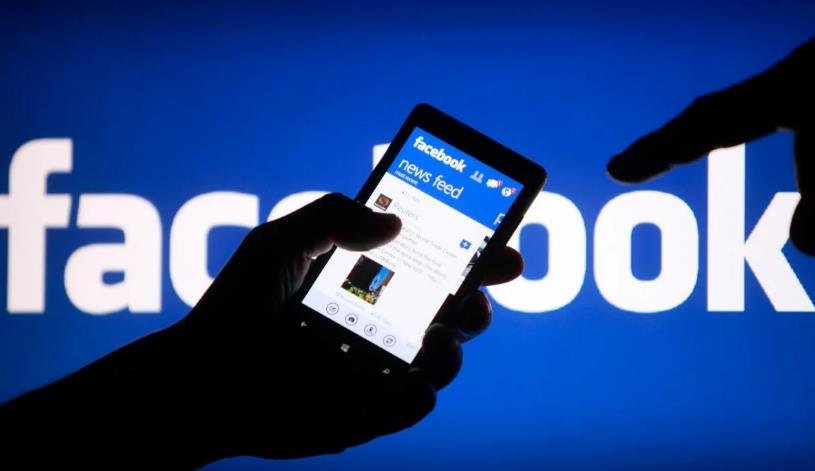Facebook, the social media giant that has over two billion users worldwide, is celebrating its 20th anniversary this year. The platform, which started as a college network in 2004, has revolutionized the way people communicate, share, and consume information online. It has also faced numerous controversies and challenges, such as privacy scandals, misinformation, and regulation.
Facebook was founded by Mark Zuckerberg, along with his classmates Eduardo Saverin, Dustin Moskovitz, Andrew McCollum, and Chris Hughes, on February 4, 2004. The original name of the website was The Facebook, and it was initially limited to Harvard students. The idea was to create an online directory of students, where they could upload their photos, personal details, and interests.

The website quickly gained popularity among Harvard students, and soon expanded to other Ivy League schools, and then to other universities across the US and Canada. By the end of 2004, Facebook had over one million registered users. In 2005, the company dropped the “The” from its name, and acquired the domain name facebook.com for $200,000. It also opened up to high school students, and later to anyone over 13 years old with a valid email address.
Facebook introduced new features and acquired other platforms
Facebook constantly innovated and added new features to its platform, such as the News Feed, which showed users the latest updates from their friends and pages they followed, the Like button, which allowed users to express their reactions to posts, and the Timeline, which displayed users’ personal history on Facebook. Facebook also launched its own messaging service, Facebook Messenger, and its own photo-sharing app, Instagram, which it acquired for $1 billion in 2012.
Facebook also expanded its reach and influence by acquiring other platforms, such as WhatsApp, a popular messaging app, for $19 billion in 2014, and Oculus, a virtual reality company, for $2 billion in 2014. Facebook also invested in developing its own products, such as Facebook Watch, a video-on-demand service, Facebook Portal, a smart video-calling device, and Facebook Dating, a dating service.
Facebook also diversified its revenue streams by creating its own advertising network, Facebook Audience Network, which allowed advertisers to reach users across different apps and websites, and its own cryptocurrency, Libra, which was later renamed Diem, and is expected to launch in 2021.
Facebook faced criticism and scrutiny over its practices and policies
Facebook’s rapid growth and dominance also brought along many problems and controversies, such as data breaches, privacy violations, fake news, hate speech, election interference, and antitrust allegations. Facebook has been accused of mishandling users’ personal data, such as the Cambridge Analytica scandal, where a political consulting firm accessed the data of 87 million Facebook users without their consent, and used it to influence the 2016 US presidential election and the Brexit referendum.
Facebook has also been criticized for failing to prevent the spread of misinformation, propaganda, and harmful content on its platform, such as the Russian interference in the 2016 US election, the Rohingya genocide in Myanmar, and the Capitol riot in the US. Facebook has also been challenged by regulators and lawmakers around the world, who have demanded more transparency, accountability, and oversight over its operations and policies.
Facebook has responded to these issues by apologizing, promising to do better, and implementing various measures, such as hiring more moderators, fact-checkers, and engineers, developing new tools and algorithms, and creating new teams and initiatives, such as the Facebook Oversight Board, an independent body that reviews Facebook’s content moderation decisions.
Facebook changed the internet and the world in 20 years
Facebook has undoubtedly changed the internet and the world in 20 years, by connecting billions of people, enabling new forms of communication, expression, and collaboration, and creating new opportunities for businesses, creators, and activists. Facebook has also influenced the culture, politics, and society of many countries, and shaped the public opinion and behavior of many individuals.
Facebook has also faced many challenges and criticisms, and has had to adapt and evolve to meet the changing needs and expectations of its users, partners, and regulators. Facebook has also had to deal with the competition and disruption from other platforms, such as TikTok, Snapchat, and Twitter.
Facebook’s future is uncertain, as it faces more pressure and scrutiny from governments, civil society, and users, and as it tries to reinvent itself and its vision. In 2021, Facebook announced that it was rebranding itself as Meta, and that it was focusing on building the metaverse, a virtual environment where people can interact and create in immersive ways. Whether this will be a success or a failure, and whether Facebook will remain relevant and influential in the next 20 years, remains to be seen.
















